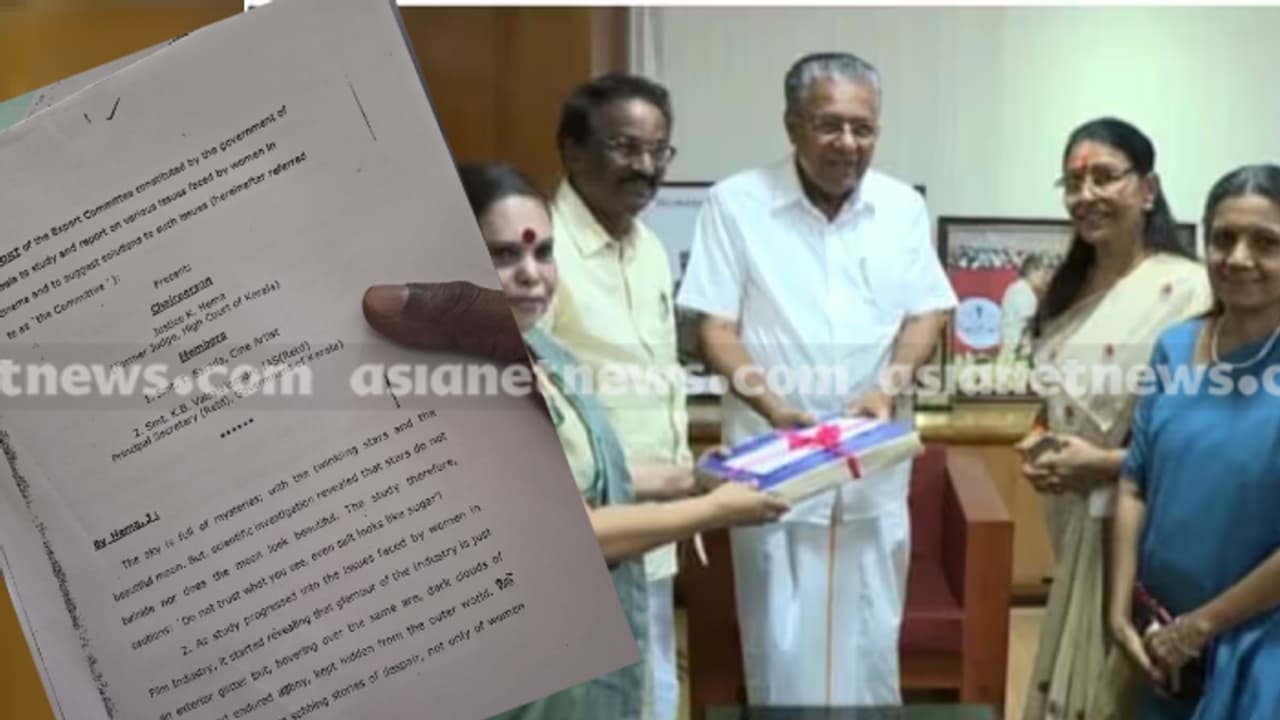The Justice Hema Committee report on the Malayalam film industry has been released to media personnel after years of suspense. The 233-page report, with some sensitive information redacted, was made available under the Right to Information Act.
Thiruvananthapuram: Following years of suspense, Justice Hema Committee report on Malayalam film industry has been released and made available to the media personnel who had requested it under the Right to Information Act. Around 2.30 PM on Monday (Aug 19), the report was handed over to the media personnel who were summoned to the office of the cultural department at the secretariat.

Also Read: Kerala: Family of 25-year-old missing sailor to move HC seeking intervention to locate him
The commission expressed shock at the revelations about the unfair practices in the film industry, where women are forced to yield to the sexual demands of top guns, including prominent actors and producers. The report also contains insights into the widespread exploitation and misogyny in the industry and women artists who are willing to co-operate for opportunities in cinema, are given code names. Those who refuse to cooperate are allegedly denied opportunities and ostracized.
Those who testified against the unfair practices alleged that agents also facilitate sexual exploitation in the industry as producers and directors coerce women into doing unwanted things. The report notes that speaking out against sexual exploitation invites severe backlash, with victims being threatened and forced to either conform or leave the industry.
“Women in cinema frequently feel unsafe going to work alone. Numerous testimonies reveal that sexual demands are commonly tied to employment opportunities, making it vastly different from other professions. In fields like teaching, medicine, or engineering, women are not subjected to such conditions. For these jobs, demonstrating one’s skills and passing an interview is usually enough to secure employment. However, in the film industry, the casting couch remains a troubling reality,” the report said.
According to an actor, women in the film industry often hesitate to report sexual harassment to the police due to the potential backlash they may face. The fear of being stigmatized, embarrassed, and ridiculed publicly, particularly for those in the public eye, silences them. Additionally, the threat of online attacks and humiliation deters victims from seeking help. The immense pressure and scrutiny women face in the industry make it even more difficult for them to speak out against sexual misconduct.
Due to concerns about sexual harassment and exploitation, many female cinema professionals feel compelled to bring family members or trusted relatives to their workplace for protection. They are anxious about their personal safety, not only on set but also in their arranged accommodations. Alarmingly, there have been reports of intoxicated industry men repeatedly visiting the hotel rooms of female artists, causing significant distress and discomfort.
During the committee's inquiry, suggestions were made to form an Internal Complaints Committee (ICC) under the POSH Act, comprising representatives from film industry unions like AMMA and FEFKA. However, the committee discovered that the Women in Cinema Collective (WCC) has filed a writ petition seeking the High Court's direction to establish an ICC. The petition argues that AMMA is legally required to constitute a Complaints Committee against sexual harassment, as per the Supreme Court's Vishakha guidelines and POSH Act. The petition also requests government intervention to appoint a Complaints Committee to address these issues.
The 233-page report has been released with some sensitive information redacted to protect individuals' privacy. Certain sections of the report, including the 96th paragraph on the 49th page, some parts of pages 81-100 and paragraphs 165-196 was omitted. The annexure is also not available.
The Justice Hema Committee was formed in 2017 to investigate the challenges faced by women in the film industry, and the report was handed over to the government after two and a half years on December 31, 2019. The committee was formed after a prominent actress was assaulted in 2017.
